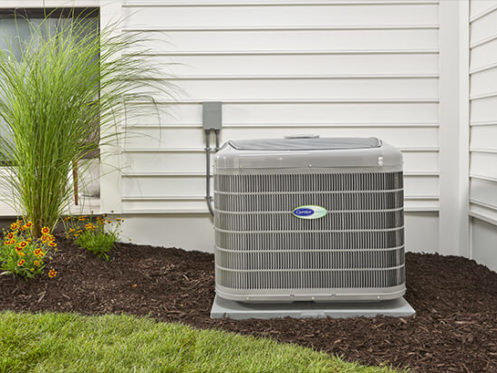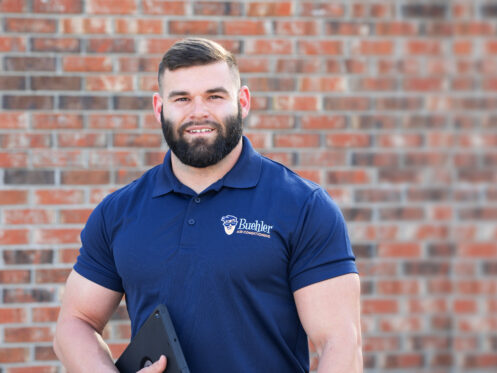Choosing the right heating system is crucial, especially if you’re looking to install new heating and air conditioning equipment. It’s normal as a homeowner to wonder what the best heating system to install is, and we do understand that you want an efficient and comfortable system that will meet all your needs.
For Florida residents, investing in a heat pump is ideal, considering how hot and muggy the weather can be in the summer. That’s why heat pumps have continued to gain popularity in humid climates.
Heat Pumps vs. Traditional AC Systems
A traditional AC unit uses a combination of an evaporator, a compressor, a condenser, tubing, and a refrigerant to absorb heat from the air within the home and to transfer it outside. It then utilizes an air controller to blow the cooled air through the house through ductwork usually hidden within the floors, ceilings, and walls. Central air-sourced heat pump systems function similarly to traditional air conditioners but with one big exception.
Heat pump devices have a distinctive feature that can turn the flow of refrigerants, allowing the heat pump to heat and cool your home. The thing that makes heat pumps ideal for humid climates like the one in Florida is that they can provide adequate heat in temperatures as low as 25 to 30 degrees Fahrenheit. However, since these systems double as the AC and the heater, you should note that they need maintenance twice a year and not once.
What to Look for in a Heat Pump
Heat pumps have a seasonal energy efficiency ratio (SEER) rating like air conditioners. However, a heat pump’s efficiency is rated in heating season performance factor (HSPF). Below are two types of heat pumps.
Ductless Mini-Split Heat Pumps
The ductless mini-split heat pump heats your home without ductwork, making these systems easy to install and very efficient.
Geothermal Heat Pumps
Unlike an air source heat pump, a geothermal heat pump transfers heat from a water source or the ground, making it the most effective type of heat pump. However, geothermal systems installations can be invasive and cost-prohibitive in many residential cases. Despite this increase in cost and difficulty, they are one of the most popular types of heat pumps.
Finding the Right Heat Pump
There’s no overall best cooling or heating system, and there aren’t worst ones either. Even energy-hungry window units and space heaters have their place.
The better question is about what will suit you best. There are a lot of factors that you need to consider when choosing an HVAC system. Your home and needs must be considered, for example:
- The square footage of your home
- The number of floors you have
- The number of occupants you have
We believe that a heat pump is a good choice because it provides top-tier efficiency, it can be used in all seasons, and it boasts long lifespans.
You Get to Take Full Advantage of Heating and Cooling Features
Since heat pump technologies are both heaters and air conditioners combined into one HAVC system, these devices are useful for the entire year.
Still, some people see air conditioning as a luxury, which makes it difficult to justify the price of a heat pump because a furnace could complete their heating needs. This viewpoint is understandable because gas furnaces are affordable, are easy to install, and work considerably well.
Even so, the heat pump uses heat transference and electricity to create warm air instead of combustion. And even if you don’t have an air conditioner in Florida, it would be unwise not to get a device that can cool and heat effectively.
A Heat Pump Lowers Your Monthly Heating Bills
A heat pump can reduce your heating bill by half using electric resistance heating. A heat pump extracts heat from outside to warm the air in your house whereas wall heaters, baseboard heaters, and furnaces use electricity to generate heat. By using this recycled warmth, heat pump devices use much less electricity than if they were to create the same amount of heat on their own. That’s why they save electricity; transferring heat needs less energy than creating it. Therefore, heat pumps use much less energy than traditional HVAC systems.
Heat pumps may become less efficient when the outside air gets cold, but in Florida, below-freezing temperatures are infrequent, allowing for optimal heat pump system effectiveness.
Reduce Your Environmental Impact
Heat pumps aren’t just budget friendly; they’re also environmentally friendly. Heat pumps have an advantage because they use electricity, which is the cleanest way to convert energy into heat, instead of a combustible system that introduces pollutants into the air. The eco-friendliness of heat pumps doesn’t end there. Electricity produced in the U.S. comes from burning fossil fuels, but using heat pumps helps reduce your carbon footprint even while using electricity.
Improves Indoor Air Quality
Some homeowners may prefer combustion heaters because they use propane gas and other combustible fuel sources. These are efficient, but they also produce carbon monoxide as a byproduct, and when these systems leak, they will spill the carbon monoxide into your home.
On the contrary, heat pumps do not rely on combustion; therefore, they do not pose any risk of leaking carbon monoxide poison into your house. Plus, they will not dry out air because there’s no combustion taking place. You should note that dry air can cause dry skin or eyes, and in the worst cases, it can trigger asthmatic attacks.
The most significant setback for heat pumps is that they aren’t efficient at temperatures below 30 degrees Fahrenheit. So, if you reside in an area where temperatures drop below 30 degrees, you need to have a hybrid heat pump or a backup source, or you will have to resort to using furnaces and miss the perks that heat pumps bring in the summer. Surprisingly, the cost of heating with a heat pump is still cheaper than the cost of resistance heating even when you need a backup source for your heat. Luckily, in Florida, temperatures rarely drop below 40 degrees Fahrenheit. Thus, you can use your heat pump all year long, living in absolute comfort.
Lowers Humidity
Heat pumps are not humidity control devices, but their air conditioning functions tend to lower humidity levels just as a byproduct of their normal operations. While you will enjoy this perk anywhere in the country, Florida is the most humid state in the continental United States.
Lowering humidity does more than increase your comfort. High humidity levels warp wood floors and furniture, create mold and mildew growth conditions, and increase airborne infections.
The weather in Florida can be a bit of a wild card dealing with temperature extremes at both ends. Thus, you need a reliable, strong system that can meet your needs. That’s why the best way to get clear answers is to talk with the Buehler Air Conditioning & Plumbing experts in Jacksonville. We will listen to your home needs and guide you towards the best solution. Whether you need air conditioner or furnace repairs or installations or you are looking for help with ductless mini-splits or air purifiers, we can help. Give Buehler Air Conditioning & Plumbing a call today for more details.




